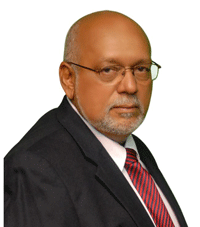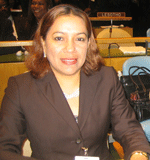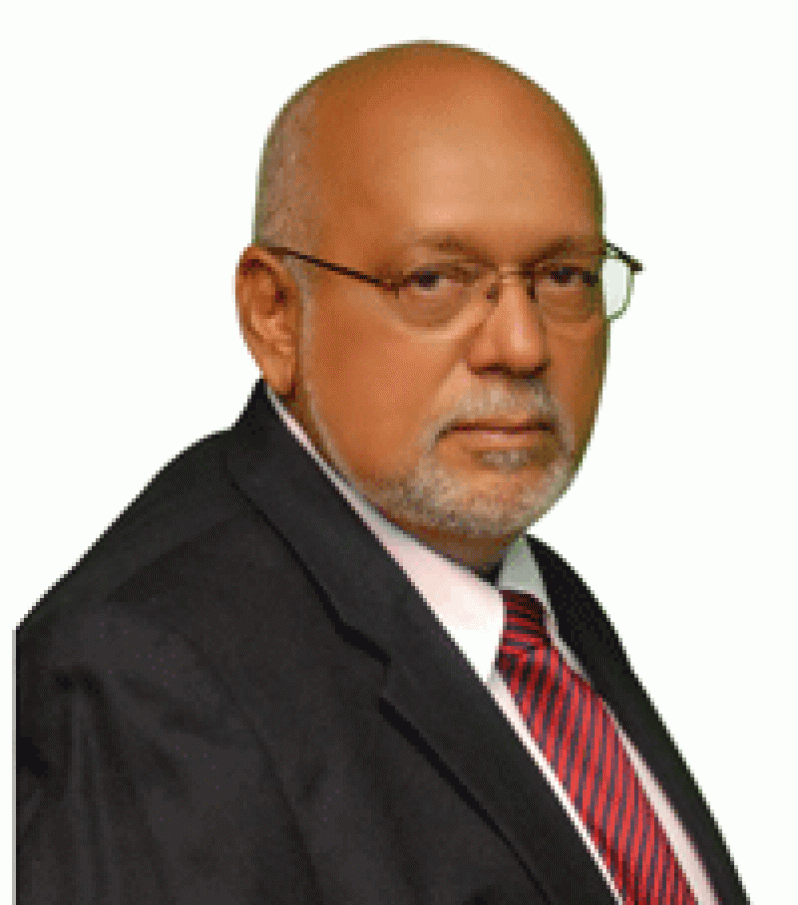Caribbean must speak with one voice at Rio+20
PRESIDENT Donald Ramotar has said the Caribbean must take a lead in the fight against climate change and, as such, speak with one voice at the upcoming United Nations Conference on Sustainable Development (Rio+20) Summit scheduled for this month in Brazil.  He threw out the challenge during his address at the opening of the twenty-fourth session of the Caribbean Development and Cooperation Committee (CDCC), convened by the Economic Commission for Latin America and the Caribbean (ECLAC), last Thursday, at the Guyana International Conference Centre, Liliendaal, East Coast Demerara.
He threw out the challenge during his address at the opening of the twenty-fourth session of the Caribbean Development and Cooperation Committee (CDCC), convened by the Economic Commission for Latin America and the Caribbean (ECLAC), last Thursday, at the Guyana International Conference Centre, Liliendaal, East Coast Demerara.
“This conference is also taking place at another important time when we are just on the eve of the Rio+20 conference that will be held in Brazil in June and the whole issue of climate change and its possible impact on the world have taken centre stage,” Mr. Ramotar pointed out.
He said: “The science is well-known. I don’t think there is any debate about the fact of the harm that man’s activity has caused to the environment and now we are facing the stage where it is having great impact on the rest of the world.”
In this regard, the Head of State remembered the floods, here, in 2005 and 2006 and alluded to an ECLAC study on them after, which proved extremely useful in assisting the Government to put measures in place for the affected sectors and communities.
He said the survey also showed how the Gross Domestic Product of a small low-lying country can be affected with one natural disaster, recalling that Guyana lost some 60 percent of its GDP in 2005 alone.
“I know that we are not unique in this way, that many countries in the Caribbean which have been visited by hurricanes and earthquakes, like Haiti, would have lost tremendous amount as well,” President Ramotar acknowledged.
OUR RELATIONSHIP
Continuing, he said: “The science is showing that there is a connection with our relationship with nature and many of these more violent forms of natural disasters that we speak about.
“I think that, very clearly, the message for us, from what we are seeing, is that we have to change our relationship with nature; that we cannot behave as if we are the conquering heroes of nature; that we have to learn to live in harmony with our natural environment; we have to learn the laws of nature, respect them and be able to build on our development while, at the same time, observing these laws of nature and that is not impossible.”
According to Ramotar, “the Caribbean must take a lead in the fight against climate change, even if because we are so much affected in the Region by natural disasters and also because of the fact, like Guyana, many of our countries have low-lying coastlands that can be devastating.”
“Therefore, I urge that the Caribbean must speak with one voice when we go to Rio (this month),” the President said.
President Ramotar added: “In the struggle, also to reverse the trend of climate change in the global arena, it shows that we have to have more integration among ourselves and integration with the rest of the world.”
He noted that the Regional Coordinating Mechanism (RCM), which is very important, is set up in the Caribbean but remarked that it will only work successfully and be effective if, at the national level, such institutions are strengthened nationally, so that the countries can withstand the impact of climate change and the Region is given the tools to combat the effects.
He said: “I want to promise you that the Government of Guyana will pursue a path to development, our Low Carbon Development Strategy (LCDS), we will pursue that in order to ensure that our development should not have negative impacts, to minimise the impact that it will have and that, I think, is a big contribution that we can make to our Region and to the rest of the world.”
NEW APPROACHES
Minister of Foreign Affairs, Mrs. Carolyn Rodrigues-Birkett, in welcoming remarks, said: “In this post-financial crisis context, the design and implementation of development strategies require new approaches which should address persistent structural problems, not only in the financial and economic sectors, but moreso in the social sector, dealing with issues relating to poverty, social inequality, citizens security and safety, to cite only a few.”
She also touched on the issue of climate change and said some would even argue it is the greatest challenge of all.
The Minister said this urgently requires the formulation and implementation of new strategies to foster adaptation, mitigation and risk reduction and reinforces the need for greater collaboration and integration efforts among countries in the Region, in order to address these global challenges with a regional focus.
“The role of the CDCC, in coordinating this regional effort within a multilateral framework, is important and very relevant today as it was when the organisation was created in 1975,” she remarked.



.jpg)










